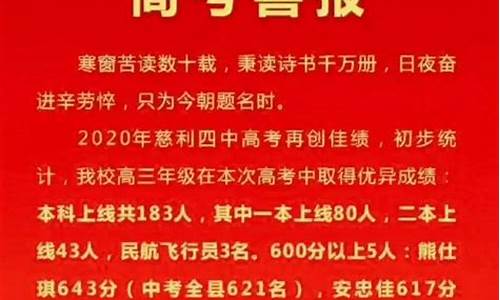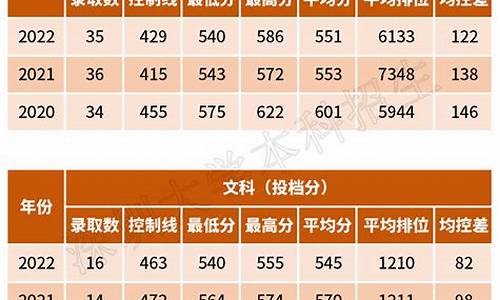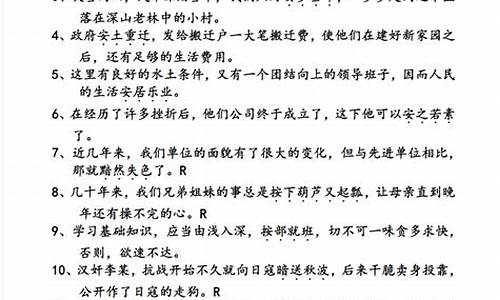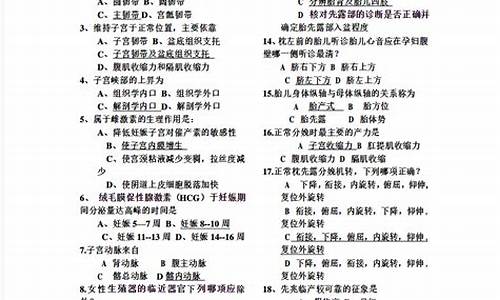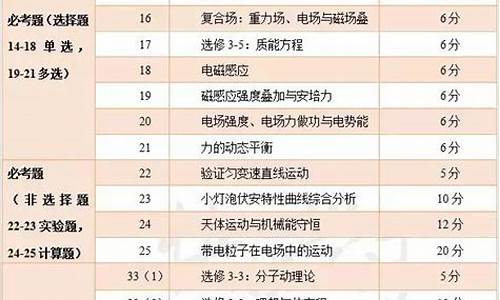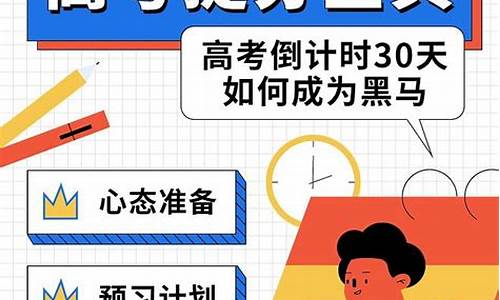2014高考英语模拟试卷_2014全国高考卷英语
1.2014年英语高考真题汇编第一卷的英语答案
2.2014江苏高考英语一条阅读,however wealthy we may be, we can never....... 有一题选
3.翻译2014年湖北高考英语真汉语翻译题:you've flown halfway 含有aroun
4.求 2014年高考新课标2卷英语的阅读理解及完形填空的译文
5.2014年浙江省高考题英语的第一个阅读翻译

C
去年夏天,两个19世纪的农舍在蒙大拿州被远程农田所拯救,搬到了一个在旧金山的装饰艺术建筑中.建筑是由木头建成的.这些村社曾经搭建在原始的栖息地,为了他们可以在干燥的Montana土壤中生活.
这个村社可能会成为工业史上的带有“低科技水平”的一个奇怪案例,在互联网时代之前,这种概念与自然世界,老式工艺有着悠久的联系.“低科技”并不是虚拟的,所以为了可以好好利用它,因特网公司已经不得不开始创新.那个被拯救的木质村舍,在18世纪末用手做成,成为一个鲜明的例子。但是Twitter的设计存在于极端的尽头.其他的公司正在用一种宽泛的阐释针对于存在于自然界的“低科技”.
Amazon正在建造三个充满了大树的玻璃球,以至于雇员可以工作,社交在一个更自然,更公园式的环境.在Google的办公室,整个的地板都被铺上玻璃.Facebook上的第二名Menlo公园大学城将有一个带有步行小道的屋顶式公园.
Olle Lundberg,Lundberg设计的创始人,已经在许多科技公司工作了很多年.“我们在生活中已经丢失了与制造者的联系,我们的科技引擎已经开始贫乏,因为它们正在被数字世界围绕着”,他说,“他们正在寻求方法重新获得工厂的身份,我们发现介绍真正的工艺是解决的办法之一”.
这个工艺以理论为基础扎根于历史,William Morris,英国美术家和作家。在1860年代转向工业化以前的艺术,就在工业污染之后.工艺美术运动给他自己下了反对工业的定义.“没有有创造力的人类的工作,人类会变得与生活毫无联系”Morris 说.
调查已经显示了自然界可以恢复人们的精神能力,在日本病人被鼓励做“森林浴”.,在森林中漫步为了降低血压.这些健康的好处也应用于工作场所.Rachel Kaplvin,环境心理学的教授,已经花了很多年调查自然环境滋补的作用.他的调查发现那些在办公室与自然界有联系的工作者—甚至只是可以看到树木和花儿—都会感觉到很少的压力和更多的幸福.如果地科技的办公人可以尽量的滋养大脑,提高雇员的精神健康,那么很好,这就会使村社模式发展下去。
△希望对你有参考作用
△没有借用翻译器,良心翻译,希望加分
△希望纳~
2014年英语高考真题汇编第一卷的英语答案
选项A. Some chimps lower their cry to keep food away from others.意思是:一些猩猩降低叫声的音量,目的是不让其他动物知道它发现了食物。keep...away from使...远离
选项B. The losing chimp won the fight by taking the winner's hand.意思是:打斗输了的猩猩通过抓住胜者的手来赢得胜利。
你所说的倒数第三段最后一句你理解错了After a fight, the losing chimp will give its hand to the other. When the winning chimp puts out its hand, too, the chimps are friendly again. But an animal expert once saw a losing chimp take the winner's hand and start fighting again.意思是:打斗后,输 了的猩猩会把手递给对方。获胜方也会伸出手,两个猩猩便重归于好了。可是动物专家曾经看到过打输了的猩猩拉起胜方的手后,再次开打。
明白了意思,你还认为B对吗?
2014江苏高考英语一条阅读,however wealthy we may be, we can never....... 有一题选
高中文理综合合集百度网盘下载
链接:s://pan.baidu/s/1znmI8mJTas01m1m03zCRfQ
?pwd=1234提取码:1234
简介:高中文理综合优质资料下载,包括:试题试卷、课件、教材、、各大名师网校合集。
翻译2014年湖北高考英语真汉语翻译题:you've flown halfway 含有aroun
However wealthy we may be, we can never find enough hours in the day to do everything we want. Economics deals with this problem through the concept of opportunity cost, which simply refers to whether someone’s time or money could be better spent on something else.
Every hour of our time has a value. For every hour we work at one job we could quite easily be doing another, or be sleeping or watching a film. Each of these options has a different opportunity cost—namely, what they cost us in missed opportunities.
Say you intend to watch a football match but the tickets are expensive and it will take you a couple of hours to get to and from the stadium. Why not, you might reason, watch the game from home and use the leftover money and time to he dinner with friends? This—the alternative use of your cash and time—is the opportunity cost.
For economists, every decision is made by knowledge of what one must forgo—in terms of money and enjoyment—in order to take it up. By knowing precisely what you are receiving and what you are missing out on, you ought to be able to make better-informed, more reasonable decisions. Consider that most famous economic rule of all: there’s no such thing as a free lunch. Even if someone offers to take you out to lunch for free, the time you will spend in the restaurant still costs you something in terms of forgone opportunities.
Some people find the idea of opportunity cost extremely discouraging: imagine spending your entire life calculating whether your time would be better spent elsewhere doing something more profitable or enjoyable. Yet, in a sense it’s human nature to do precisely that—we assess the advantages and disadvantages of decisions all the time.
In the business world, a popular phrase is “value for money.” People want their cash to go as far as possible. However, another is fast oaining an advantage: “value for time.” The biggest restriction on our resources is the number of hours we can devote to something, so we look to maximize the return we get on our investment of time. By reading this passage you are giving over a bit of your time which could be spent doing other activities, such as sleeping and eating. In return, however, this passage will help you to think like an economist, closely considering the opportunity cost of each of your decisions.
小题2:The “leftover ... time” in Paragraph 3 probably refers to the time ________.
A.spared for watching the match at home
B.taken to he dinner with friends
C.spent on the way to and from the match
D.sed from not going to watch the match
试题分析:文章大意:本文是一篇议论文。文章论述了不管我们多么的富有,在一天里我们不可能找到足够的时间做我们想要做的一切。因此,我们要放弃一些事情选择做更好的事情。
小题2:C考查词义推测。题中“leftover money and time”是指“剩下来的钱和时间”。根据文章第三段第一句Say you intend to watch a football match but the tickets are expensive and it will take you a couple of hours to get to and from the stadium.可知leftover … time所指的是“花在观看比赛(路上)来去的时间”。故C正确。
求 2014年高考新课标2卷英语的阅读理解及完形填空的译文
翻译:自己手敲
You’ve flown halfway around the world; you’ve sniffed out this place that nobody in Falongland or Thailand seems to he ever heard of;
你已经游历了大半个世界,而且你已经发现了无论是在falongland或者是泰国都无人曾经听说过的地方(注意:sniff out 本义嗅出,这里引申为发现)。
so what on earth is there to do here? You consider this question as you sink into an old wooden beach chair that holds you above the sand.
所以究竟到这里来干嘛呢?(on earth 究竟)当你坐到一个把你从沙滩上托起的老旧的木质椅子上面之时,你会考虑这个问题。(此句子可以放到前面去)
It was a long journey from Bang to Huaplee. By the time you found the bus station and got yourself sorted out, it took almost as long as the flight from Falongland.
从Bang 到 Huaplee 是一段很长的旅程,直到你找到公交站,处理好自己的问题(sort out 本义排序),这将花费差不多和到falongland的旅程一样的时间。
Huaplee is located just south of Hua Hin, about two hundred kilometres from Bang, down the west side of the Gulf of Thailand. Not many tourists find this place, and the ones that do wonder if finding it has been their purpose all along.
huaplee 就坐落在hua hin的南方,大概离柬埔寨200公里,就在泰国湾的西部。很少有游客会发现这个地方,如果有游客会发现这个地方他们也会纳闷这是不是他们一路以来的目标。
There’s an arent laziness that surrounds you here. It’s what this place offers, and it’s free of charge. The small wes that tap the shoreline seem to slow everything down. You settle into your beach chair in preparation for a long rest. You sit there and watch the sea.
在这个地方,环绕在你周围的似乎有着懒惰因子。这就是这个地方所提供的,而且也是免费的。拍打着岩石海岸的小小浪花似乎把一切事物的节奏都减慢下来了。你坐在你的椅子之上,准备着来一个长长的休憩。你坐在这,看着大海。
It’s early afternoon, so the cook comes out and asks what you’d like to eat this evening. Before long he’s rushed off to the market to buy the ingredients for whatever it was that you ordered—every meal fresh and to order. No menu here.
这是中午刚过,所以厨师出来问你是否在傍晚想吃一点。不久之前,他匆忙赶到市场里,买上了你要求的那些原料,每一餐都是新鲜的,而且都是你要求的,这里,没有菜单。
There is no poolside noise here but just that wonderfully warm, clear blue sea. There’s no street noise. The only sounds are the murmurs of nature.
这里,没有池子岸边的嬉闹杂声,而只有完美的温暖的,洁净的蓝色大海。这里没有街市的杂声,唯一的声音就是自然的低声呢喃。
For now you just count your blessings (福祉), listing them in the sand with your toe (脚趾). You don’t he to worry about being late for work. You don’t he to do anything.
如今,你记数着你的福祉,用你的脚趾把他们在沙滩上一一列举出来。你不必去担心工作会迟到,你不必做任何事情。
The beach to your right stretches off to the horizon (地平线), slowly narrowing to nothingness only to re-emerge again on your left, now steadily widening until it covers the chair beneath you. Sand to your left and sand to your right; it’s unbroken, endless. No start, no end, just sand, sun, and peace. Step off it, and you re-enter the world of traffic, stress, work, and hurry.
你右边的沙滩一直延伸到了地平线,慢慢地收窄,消失,又重新在你的左边出现,如今快速地变宽直到延伸覆盖到了你正在坐的椅子下边。沙子突而跑到你的左边,突而你的右边,它是不朽的,永不停息的,没有开始,没有结束,只有沙子,阳光和宁静。走下沙滩,你会重新进入充满交通,压力,工作和忙碌的世界。
Normally you’re the type who can’t sit still for more than ten minutes, but you’re on Huaplee Lazy Beach now and, in the right frame of mind, it stretches all the way around the world.
一般情况下,你是那种几乎不能静坐超过十分钟的类型的人,但是你如今来到了 Huaplee Lazy Beach ,而且在思维的结构之中,它延伸到了整个世界的旅途。(意思就是说在这个地方人们可以远离原来的traffic,noise,hurry,用一种不同于原来世界的看法和思维模式来生活。)
“How could it take me so long to find it?” you wonder.
考点考察广告应用类阅读
文章大意本文叙述了泰国美丽的海滨度胜地Huaplee,作者描述了这里美丽的景色,可口的饭菜以及缓慢的生活节奏。目的在于吸引更多的人来到这里。
63. 答案D
解析推理题。根据文章2,3段It was a long journey from Bang to Huaplee. By the time you found the bus station and got yourself sorted out, it took almost as long as the flight from Falongland.和Not many tourists find this place, and the ones that do wonder if finding it has been their purpose all along.可知从曼谷去那里要花很长的时间,而且很受有游客能够找到这个地方。作者第一次去也花了很长的时间。故D正确。
64. 答案A
解析细节题。根据文章第五段It’s early afternoon, so the cook comes out and asks what you’d like to eat this evening. Before long he’s rushed off to the market to buy the ingredients for whatever it was that you ordered—every meal fresh and to order. No menu here.可知在这里吃饭,是没有菜单的。都是量身定做的,故A正确。
65. 答案B
解析推理题。根据文章倒数第二段Normally you’re the type who can’t sit still for more than ten minutes, but you’re on Huaplee Lazy Beach now and, in the right frame of mind, it stretches all the way around the world.可知如果你正常是一个很难停下来很忙碌的人,那么来到这里,你就应该忘记一切,享受大自然的美丽。故B正确。
66. 答案D
解析推理题。根据文章最后一段之前的描述可知这里的风景迷人,饭菜可口,生活惬意。作者后悔很晚才发现有这样的地方。故D正确。
长难句解析
1. By the time you found the bus station and got yourself sorted out, it took almost as long as the flight from Falongland.
翻译到你找到车子把自己安定好的时候,你会发现所花的时间几乎和从Falongland来航班一样。
分析本句中的by the time到…时为止;引导的是一个时间状语从句,通常都是和完成时连用。如果by the time后面是现在时间,主句就使用现在完成时;如果后面是过去时的时间,主句使用过去完成时。
2. It’s what this place offers, and it’s free of charge.
翻译那是这个地方给你提供的东西,而且它是免费的。
分析本句是由and连接的两个并列句。前一句中的what this place offers是一个表语从句,what引导起这个表语从句,并在表语从句中做动词offer的宾语。
2014年浙江省高考题英语的第一个阅读翻译
C 篇
在人们心目中一个专业的训狮员就是一手挥鞭一手持椅的逗乐人。鞭子捕获了所有的注意 力,而事实上,鞭子大部分时间只是表演。 ,真正起作用的是椅子。当巡视员手拿椅子出现在狮子 面前,狮子试图把注意力同时放在四条椅子腿上。由于注意力被分散,狮子变得迷惑不知道下一步 做什么。当面对太多的选择,狮子选择僵持和等候,而不再攻击持椅人。 有多少次你感觉自己和狮子一样处于一样的境地?又有多少次你心存目标如减肥、开办企业或 是游历更多地方 ,但结果只是止于对眼前诸多选择的困惑而最终毫无进展? 这种情况一直是我不安烦恼,因为当所有的专家忙着讨论那个是最佳选择时,想要提升自我生 活的人们却被各种充满矛盾和冲突的信息所困惑。 最终的结果就是我们感觉不能集中精力或我们正 把精力投在错误的事情上,之后我们不再作为,进展很小,在我们 本能提升的时候却原地不动。 事情本不必那样。 任何时候当你发觉世界在你面前惠东椅子时, 记住这点:你需要的就是集 中精力做好一件事。你只需立即开始。 在你感觉就绪前 就开始行动是许多成功人士的习惯。如果 你有想要去的地方,想要完成的事情,想要成为某种人士。 。 。立即取行动!如果你清楚地知道你 想要去的地方,世界所有其他不是帮助你到那就是为你让路。
D篇
随着越来越多的人说诸如英语、汉语、西班牙语和阿拉伯语等世界语言,其他语种正迅速 消失。事实上,根据世界教科文组织的调查,今天在世界上使用的 6000-7000 种语言中的一半很可 能将会在下一个世纪消亡。 在阻止语言消亡的努力中,来自许多组织的学者,包括教科文和国家性地质人员在内,已经花费 许多年时间在整理那些正在消亡的语言和文化。 M 耶鲁大学的一位科学家,专注于喜马拉雅山地区的语言和口述的传统,也正在记录那的传统。他 最近出版的那本书,就出自他在尼泊尔的一个村子的生活、工作和抚养一个家庭的经历。 记录 T 的语言和文化,对于他来说只是一个起点,他努力寻求其他的语言和传统,包括喜马拉 雅山地区的印度、尼泊尔、不丹和中国。 。但是他不满足于仅仅记录那些即将消亡的声音。 在剑桥大学他发现极有价值的重要资料包括照片,**,录音材料,驻地记录等,这个仍然未 被研究急需关注和保护。 现在通过他创建的两个组织他已经发起了一项运动以便使在世界范围内的图书馆和储藏的资 料能为年轻一代所用, 而不仅仅局限于那些学者。 M 说, 多亏有数码技术和遍及全世界的网络技术, 那些濒危的语言才能够被拯救并与各语言研
财富曾始于一个目标节约一元钱。把它叫做储蓄罐策略。有在这历史悠久的硬币节能容器的经验教训。 任何艰巨的任务似乎当减小到婴儿的步骤更简单。如你想爬上12000英尺高的山上,并可能一天的时间去做它,你将只需要爬33英尺每天达到顶峰的一年。如果你想取一个非常好的行程,10年为一个特殊的场合,收取1.5万美元的成本,你必须保存一天3.93美元。如果你删除一个成一个储蓄罐,然后每年一次把1434美元在一个储蓄帐户在1%的利率税后,你将有你的旅行的钱。 当我还是个孩子,我的父母给了我一个储蓄罐教我说,如果我想要的东西,我要攒钱买它。我们扑满与孩子联系起来,但在许多国家,小容器也深受成年人。欧洲人看到一个储蓄罐作为吉祥和财富的象征。在世界各地,许多人认为在元旦储蓄罐的礼物带来好运和财务上的成功。啊,但你必须把它的东西。 为什么猪作为储蓄的象征?为什么不象银行,这是更大,并拥有更多的硬币?在中世纪,现代银行和信用工具之前,人们节省下来的钱在家里,几个硬币在一个时间投进一个罐子或盘子。制陶工从一个桔**的黏土制成所谓的这些廉价的容器“pygg,”和人在pygg jars.The中古英语单词储存硬币 猪是“pigge”。而撒克逊人明显pygg,指的是粘土,为“哈巴狗”,最终这两个词变成相同的发音,听起来“我”在猪或小猪。因为这个词成为与橙色粘土和更多的动物,一个聪明的陶工塑造一个pygg罐子在猪的形状,取悦儿童和成人较少有关。扑满诞生了。 本来你必须打破银行取到钱,带来严肃的感觉变成储蓄。虽然扑满教孩子储蓄的智慧,成年人往往需要重新学习的童年经验教训。想想看,需要大量的金钱在生活中的事情---大专以上学历,婚礼,汽车,医疗,创业,置业,和有趣的东西一样伟大的旅行。所以,当你有钱,脱下的前10%,把它放在一边,保存和明智地投资。
声明:本站所有文章资源内容,如无特殊说明或标注,均为采集网络资源。如若本站内容侵犯了原著者的合法权益,可联系本站删除。




